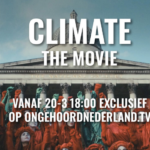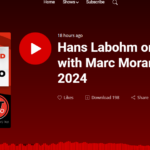If one ever wanted one article summing up all that’s wrong with climate science and climate science communication then we now have a credible source. Read senior editor Beth Kowitt’s Fortune article: The Paradox of American Farmers and Climate Change. What is the paradox?
Some U.S. farmers are skeptical of climate change, even though they’re among the most affected by it
Sounds a bit like the French paradox in nutrition. With the false dogma of saturated fat causing heart disease one needs an alternate theory to explain how the animal fat loving french have such healthy hearts. Red wine? Without the dogma the answer is simple: the french have such healthy hearts because animal (saturated) fat raises HDL (the good cholesterol) and decreases the VLDL fraction in LDL (the so called “bad” cholesterol). The same with farmers and climate change: there is no paradox.
What are the 5 true reasons farmers are rightfully sceptical of AGW?
- The elephant in the room is that each farmer has day to day experience with CO2 as the ultimate growth factor for their crops. If they have greenhouses they know that CO2 fertilisation is the most potent growth enhancer. They at least know all about plant physiology from their agricultural schools. Hence they will be sceptical of anyone badmouthing CO2.
- Also they know that a greenhouse works because closed windows kills cooling by convection. They know it has nothing to do with radiation. They know that the atmosphere cools the planet rather than warming it.
- Furthermore: farmers just might have grandparents who “survived” the dustbowl… so much for unprecedented global warming.
- Lastly: provided that farmers are good entrepreneurs they might have just the right objective sources for their climate data. Like Andries Rosema’s Ears satellite based climate monitoring service in Delft. Or maybe they even engage objective weather forecasters such as Piers Corbyn’s weatheraction.com of Joe d’Aleo and Joe Bastardi’s weatherbell.com.
- To quote Richard Lindzen it is the highly educated that are most vulnerable to be indoctrinated with scientific information that suits their lifestyles (confirmation bias, wishful thinking). Like if you are an elitist or would-be elitist writer like Beth Kowitt, Senior Writer at Fortune Magazine, Greater New York City Area then you are most prone to believe rubbish that any farmer with common sense will never ever in their right minds believe.
So lets just for the sake of the argument assume that anthropogenic global warming (AGW) is a hoax. Let’s assume there is no paradox with farmers. Let’s also be so honest to admit that there are dozens of highly acclaimed climate scientists who are just as sceptical as most farmers appear to be. Let’s then turn all the epi-circles that Beth Kowitt and her sources come up with against her and her ilk and see where that leaves us. The funny thing is: 99 percent of the article can remain intact to make sense. Please join me in all the fun!
Before we proceed however let’s first look at a truly brilliant video of exactly such a quid pro quo that I will be trying to pull of below…
If you don’t think that this is funny than don’t bother to read on…. If you did then please wipe of your tears and keep another towel ready for the rest. Here we go! Let’s substitute writer for farmer in Kowitt’s article, do minimal other changes (all underlined) and see what we get…
The Paradox of American writers and Climate Change
Some U.S. writers are skeptical of climate change, because they’re the least affected by it
There’s a strange paradox in the world of writing about agriculture: writers are perhaps the segment of the population least affected by climate change, and so the vast majority of them do believe in it—especially the notion that it’s man-made.
I encountered this phenomenon as I reported a feature for Fortune on how agricultural giant Monsanto is attempting to help farmers both mitigate their impact on the environment and adapt to climate change. All the farmers I talked to readily acknowledged that the weather patterns governing growing seasons had been turned upside down in recent years, but I was on the receiving end of a lot of eye rolls whenever I brought up climate change.
Monsanto MON -2.02% gets a similar response from the growers who buy its seed. The company’s chief technology officer, Robb Fraley, told me he’s received numerous angry emails from farmers asking why the company is supporting what some call “this government effort.”I don’t want to suggest that all farmers are rightly sceptical of the concept of climate change. That’s not the case. But here’s what some of the numbers show: A survey conducted by Iowa State Professor J. Arbuckle and Purdue University professorLinda Prokopy of 5,000 Cornbelt farmers—representing about 60% of U.S. corn production and 80% of farmland in the region—found that only 8% believed climate change is taking place and caused primarily by human activity. That 8% figure is significantly lower than the general population. A poll from January found that 27% of the general public primarily blames human activity.
Meanwhile, 33% of the farmers surveyed said climate change was caused more or less equally by natural changes and human activities, 25% said it was caused by changes in the environment, 31% said there wasn’t sufficient evidence to know if climate change is occurring, and 4% said climate change is not happening.
So, what’s driving this realism? “Amongst the elite the term climate change is be politically charged,” U.S. Secretary of Agriculture Tom Vilsack told me, “and there is a reluctance to embrace that bogus term while also recognizing weather patterns are changing and that farmers need to adapt.”The politicization of science is nothing new. Just think of the anti-vaccination movement. But it comes out in full force within the world of agriculture, especially when considering climate change and genetically modified organisms—one of the industry’s hot-button issues. Many farmers who accept the scientific consensus on the safety of genetically modified seed reject the consensus on climate change. Meanwhile, many environmental activists reject the science on the safety of genetically modified seed but embrace the bogus science that supports their views on climate change. Monsanto gets hit from all sides because it believes in both. (no change here. the original truly says “believes”; HS).
Yale Law School Professor Dan Kahan, who studies science communication, has written that “when people are shown evidence relating to what sceptical scientists believe about a culturally disputed, policy-relevant fact … they selectively credit or dismiss that evidence depending on whether it is consistent with or inconsistent with their cultural group’s position.” This leads people to “form polarized perceptions of scientific consensus even when they rely on the same sources of evidence.”
We’ll save examining the GMO vs. climate change debate among environmental activists for another day. But if you look at farmers, they “are simultaneously the most skeptical when it comes to climate change, because they are also the group that uses climate science in decision making the most,” Kahan says.
Kahan has written extensively on this non-paradox, but he doesn’t view it as an inconsistency. “There are two climate changes,” Kahan explains. “There’s the one that elitist have a position on that reflects a kind of cultural identity that’s associated with accepting it or not, and then there’s the climate change thatfarmersmake decisions about with consequences for their life. They’re totally different things.”
Kahan summed this up nicely in one of his papers: “Peoples’ answers to whether one ‘believes in’ human-caused global warming doesn’t measure what they know; it expresses who they are.” Kahan says it’s no different from the person who wears a pro-climate change t-shirt but knows absolutely nothing about the science behind it.
Citing a parallel to farmer sentiment about climate change, Kahan points to work by Donald Everhart and Salman Hameed, who have studied Pakistani physicians in the U.S. In their work, they describe an oncologist “who ‘disbelieves in’ evolution at home but ‘believes in’ it at work.” The doctor believes in evolution to treat his patients, but rejects it as a devout Muslim.
At work, farmers acknowledge changes in the growing season and adopt practices like no-till farming and cover crops that help deal with the true natural climate change’s effects on agriculture. “They really seem to be working hard to adapt,” Arbuckle says, “but then much of their base doesn’t want to talk about the bogus anthropogenic climate change.”
Kahan has found that there’s no correlation between belief in man-made climate change and measures of scientific knowledge, but there is a high match between beliefs in climate change and political identity. One study Kahan has cited found that 75% people who viewed themselves as liberal believe that human activity is the main source of global warming; only 22% of respondents who classified themselves as conservative held the same belief, and 58% said they did not believe there was enough evidence to show the planet was warming. “We know that writers tend to be as a group far more liberal than the average member of the public,” Purdue University professor Prokopy told me.
So, does it matter if farmers disbelieve in climate change? It does because they are already adopting practices that help with both mitigation and adaptation. But it does show that writers, activist scientists and regulators (and journalists) need to be careful about how they talk to farmers about the completely manmade science of climate change.
And indeed we will write about Monsanto so other time. It’s been too long that GMO’s have gotten a free pass in climategate.nl. Thanks Beth Kowitt for reminding us.






Wat een raar stukje weer. Natuurlijk is het zo dat een verhoogde CO2 concentratie de plantengroei bevordert. Dat kan in het belang zijn van boeren. Maar dat betwist ook niemand! Het staat los van de vraag of de temperatuur op aarde stijgt door een hogere CO2 concentratie.
“They know that the atmosphere cools the planet rather than warming it.”
Ehh…? Ik denk dat boeren vaak heel goed zijn in hun vak, maar de meeste zullen geen natuurkunde gestudeerd hebben. De bovengenoemde uitspraak is in ieder geval onzin.
Nope it’s not. Just because you don’t understand it, it’s not nonsense. That attitude certainly didn’t get you through school or university. Some things require a bit more thinking. Some even a good nights sleep. Its so funny thinking back at my time at university when literally everybody was always at my desk asking whether I could explain them the hard stuff. Then later in life everyone starts assuming everybody’s just the same IQ. It’s not so. So you might as well have asked what I meant rather than blaming me to write nonsense. But if that’s the 2D-hole you’d like to stay stuck in that’s fine with me. ;-)
Tsjonge, wat een arrogante reactie! Zo zie je ze niet vaak. Je gaat niet eens inhoudelijk op mijn punten in.
De invloed van de atmosfeer op de gemiddelde temperatuur op aarde kan simpel afgeleid worden door een vergelijking met de maan. Die staat op een zelfde afstand tot de zon. Scheelt toch enkele tientallen graden.
En o ja, “That attitude certainly didn’t get you through school or university.” Met mijn studie is het aardig goedgekomen, hoor.
I’d rather call it pride, than arrogance. Glad you made it through university. Guess that makes you a little proud/arrogant too?
My bold below! Look at the points that might apply to you. Never stop introspecting!
;-)
There are two kinds of pride, both good and bad. ‘Good pride’ represents our dignity and self-respect. ‘Bad pride’ is the deadly sin of superiority that reeks of conceit and arrogance.
John C. Maxwell
Sometimes it’s difficult to accept, to recognize one’s own mistakes, but one must do it. I was guilty of overconfidence and arrogance, and I was punished for that.
Mikhail Gorbachev
The most important scientific revolutions all include, as their only common feature, the dethronement of human arrogancefrom one pedestal after another of previous convictions about our centrality in the cosmos.
Stephen Jay Gould
False modesty can be worse than arrogance.
David Mitchell
There is this tremendous amount of arrogance and hubris, where somebody can look at something for five minutes and dismiss it. Whether you talk about gaming or 20th century classical music, you can’t do it in five minutes. You can’t listen to ‘The Rite of Spring’ once and understand what Stravinsky was all about.
Penn Jillette
The last one is great! Shame on you. My colleague Rypke has started simply trashing comments that are maliciously “kort door de bocht”. The least you could do, is show some respect. You didn’t. And you’re still wrong. Think some more. Your brain will crack it. I’m sure. Give it some time…
PS Very happy to have been able to confront you with something unprecedented. Not too many things are unprecedented these days. Not even the climate.
O nee he..
Nu is Hajo ook al van het padje af. Wat is er toch gebeurd? (What happened? Blijkbaar moet het in het Engels opeens.)
U parkeert uw auto in het zonnetje. Binnen het ding loopt de temperatuur op tot 75 C, erbuiten is het 25 C. Conclusie: de atmosfeer koelt 50C.
Indeed, real greenhouses block convection and prevent cooling. Convection in the atmosphere transports heat energy to higher levels, whilst it’s cooling down the surface. But the upper atmosphere has to get rid of the heat somehow. That’s done by radiation to outer space, a.k.a. as the greenhouse effect. Hence the overall result of the greenhouse effect is cooling, not heating. Consequently, increasing the amount of greenhouse gasses does not necessarily lead to warming of the surface.
André
“the upper atmosphere has to get rid of the heat somehow. That’s done by radiation to outer space, a.k.a. as the greenhouse effect.”
Deze straling gaat toch niet alleen uit van broeikasgassen, maar van alle luchtmoleculen? Alles wat warmer is dan o Kelvin straalt toch?
Dus zonder convectie zou het op aarde, net als in Davids auto, 50 graden warmer zijn? Net als in de Sahara?
Erik,
Misschien wil je dit even doornemen:
http://climategate.nl/2015/08/27/mijn-kijk-op-de-invloed-van-co2-op-het-klimaat-deel-een-geen-co2/
Alleen broeikasgassen of beter gezegd “infrarood actieve gassen”. En omdat er amper H2O zit in de stratosfeer is daar vooral CO2 actief (en ook de CFK’s doen een beetje mee – heeft ook aanzienlijke natuurlijke component). Daarom ook: hoe meer CO2 hoe kouder de stratosfeer. Verder is de enige mogelijkheid voor de aarde om te koelen de rechtstreekse straling vanaf het oppervlak naar de ruimte (en netto heb je alleen ’s nachts een afkoeling daarmee). Voor zover er een broeikas is sowieso alleen ’s nachts: dan kan bij een inversie de atmosfeer de aarde een beetje terug opwarmen cq. isoleren. Overdag koelt de atmosfeer de aarde convectief.
Hajo,
De aarde, oceanen en land, straalt infrarood uit en koelt daardoor. De atmosfeer is grotendeels transparant voor infrarood, behalve een paar infrarood actieve moleculen als H2O damp en CO2, circa 2% vd atmosfeer.
De niet direct uitgestraalde warmte gaat grotendeels door convectie omhoog, convectie door geleiding aan het oppervlak en door aangeslagen infrarood gevoelige moleculen, vnl waterdamp, die hun warmte hebben overgedragen aan omringende luchtmoleculen.
De hogere luchtlagen raken vervolgens deze warmte kwijt door naar het heelal uit te stralen.
Dus een deel vd warmte straalt rechtstreeks vanaf het oppervlak, en een deel via convectie en vervolgens uitstralen.